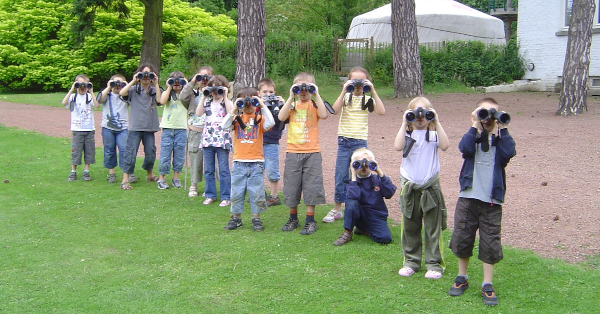The intellectual development and creativity of children is important, especially through gamification learning. That is why we are working on the LivingSTEM project. The project is to help teachers and educators to teach 10-14 years old pupils science through permaculture and to develop children’s critical thinking to adopt a sustainable lifestyle, as well as to learn and discover science through permaculture. Pupils can learn how to implement a vegetable garden based on the permaculture principles at school through various pedagogical tools.
We have prepared 20 ACTIVITIES in English, French, Greek, Italian, Polish, Danish and Spanish.
All of them can be downloaded for free from the project website and can be adopted at schools, culture centres, etc. All activities are carefully laid out to develop a sense of intrigue, making the learning experience enjoyable and the implementation trouble-free. An important tool for learning about STEM education and permaculture is our MANUAL. This tool is destined to teachers, facilitators and stakeholders who are or want to be involved in the creation of a cross-sectoral, collaborative scientific
learning experience for children. The manual will be available in all project partners languages.
Not only have we prepared a set of activities, but also the DECK OF CARDS that the children can use for play-based learning to learn about the specific plants in a permaculture garden. Students can be invited to find information during their treasure hunts and quests, which could contribute to the elaboration of the cards, for instance by mapping the journey of all the products.
We also came up with activity in which pupils will create their IDEAL MENU based on the acquired knowledge in science and experience. This is to provide teachers and facilitators with the proper tools to implement such an activity in terms of management, timing and supervision with some pedagogical instructions. We have also prepared activities where students can create their IDEAL KITCHEN GARDEN. This GAME will give teachers the proper tools to implement such an activity in terms of
management, timing and supervision with pedagogical instructions. Children will learn a lot during the whole experience and then they will record 50 VIDEOS to link science and permaculture by talking about their experience in their own words. Therefore, the project partners will create a space on the project’s website for children to record all the new things they have learnt.
This #livingSTEM project is co-funded by the ERASMUS+ programme of the EU. Its content reflects the views of the authors, and the European Commission cannot be held responsible for any use which may be made of the information contained therein (2019-1-BE01-KA201-050529)
#livingSTEM https://www.livingstem.eu/
All language versions of our resources can be found on the project website:
https://www.livingstem.eu/en/resources/
Follow us on social media with the hashtag #LivingSTEM
or on our FB page @livingSTEM
We come to schools, run online meetings and webinars with teachers, where we encourage
educators to evaluate our materials!
The Project Partners
The Erasmus Plus funded project has a consortium of seven partners:
- Générations.Bio (Belgium)
- Logopsycom (Belgium)
- Citizens in Power (Cyprus)
- Transit Projectes (Spain)
- Ed-consult (Denmark)
- EduLab (Italy)
- The Polish Farm Advisory
- Training Centre not for profit Sp. z o.o. (Poland).
These photos were taken in January 2021 of a school transforming an abandoned garden of Institut Montjoie into a permaculture garden. The students aged 12-14 years aim to be able to cultivate vegetables for a harvest in June that they would like to share with refugees in the area.
Thanks to Etienne Huvelle for sharing these pictures from Générations.Bio, Brussels.

